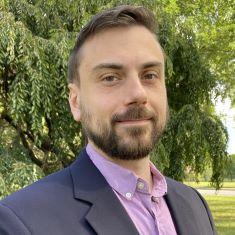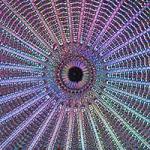
Research Topics
Cancer Biomaterials Engineering
The Cancer Biomaterials Engineering Section is a multidisciplinary combination of biomaterials science, cancer immunology, and tissue engineering. The lab is led by Dr. Matthew Wolf and investigates immunomodulatory biomaterials for use in next-generation cancer immunotherapies. Biomaterials are made from a diverse range of substances, from plastics to collagen, and are important tools in medicine. Examples include artificial joints, vascular stents, reconstructive surgery after car accidents, or even replacing entire tissues like heart valves. However, biomaterials also have the ability to initiate and regulate inflammation in ways that depend on its physical and chemical composition. We aim to integrate immunomodulatory biomaterials with immune oncology – the study of the immune system’s role in recognizing and fighting cancer. Decoding the cellular and molecular processes at the biomaterial-tissue interface enables us to control immunity for more effective cancer immunotherapy, cancer vaccines, and patient-specific tumor models in-a-dish. Understanding the reverse (how cancer hijacks the immune response to materials), will aid in developing regenerative medicine therapies for cancer patients who have impaired wound healing.
Scaffold Assisted Cancer Immunotherapy. Biomaterial scaffolds are used for precise localized drug delivery. Biomaterials also have the ability to initiate and regulate inflammation in ways that depend on its physical and chemical composition, providing a natural synergy with cancer immunotherapy. We aim to integrate immunomodulatory biomaterials in surgical immune oncology – the study of the immune system’s role in recognizing and fighting cancer during surgical intervention. Decoding the cellular and molecular processes at the biomaterial-tissue interface enables us to control immunity for more effective cancer immunotherapy such as checkpoint blockade immunotherapy and cancer vaccines.
Tumor Tissue Engineering the Tumor Microenvironment. Cancer cells don’t work alone to form tumors but rather rely on support from a three-dimensional (3D) microenvironment made up of fibroblasts, immune cells, and extracellular matrix (ECM). This tumor microenvironment enables cancer progression and therapy resistance, including resistance to cancer immunotherapy. We created a method to engineer tumor microenvironments in-a-dish that we call “MatriSpheres,” wherein diverse tumor cells and ECM molecules spontaneously self-assemble into 3D tumor-like structures. By using decellularized ECM, we can mimic the tumor microenvironment to study its effect on immune function and to test therapeutics in vitro before going to patients or animals.
Biography
Dr. Matthew Wolf earned his doctoral degree in Bioengineering at the University of Pittsburgh, Swanson School of Engineering under Dr. Stephen F. Badylak where he developed biologic scaffolds for muscle tissue engineering. His postdoctoral training was conducted in Dr. Jennifer Elisseeff’s lab at Johns Hopkins University within the Translational Tissue Engineering Center (TTEC) and the Bloomberg~Kimmel Institute for Cancer Immunotherapy where he studied the immunological determinants of biomaterial-tumor interactions. During this time, he was awarded the Hartwell Foundation Postdoctoral Fellowship (2016) and was recipient of the Regenerative Medicine Workshop Young Investigator Postdoctoral Award (2019). He was appointed as a Research Associate in Johns Hopkins Biomedical Engineering in 2019. Dr. Wolf joined the National Cancer Institute as an Earl Stadtman Tenure-Track Investigator in August, 2020 where he studies immunomodulatory biomaterials to augment cancer immunotherapy.
Related Scientific Focus Areas

Biomedical Engineering and Biophysics
View additional Principal Investigators in Biomedical Engineering and Biophysics


This page was last updated on Tuesday, August 19, 2025